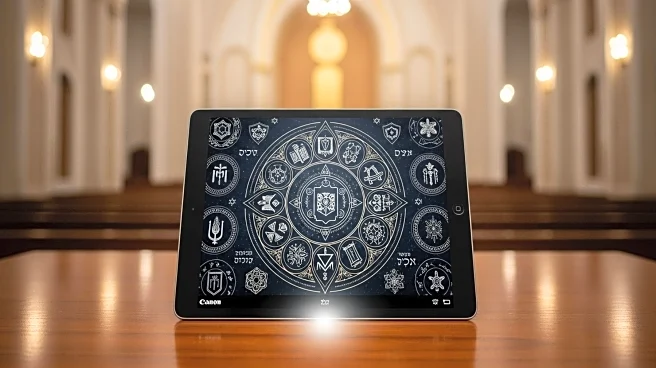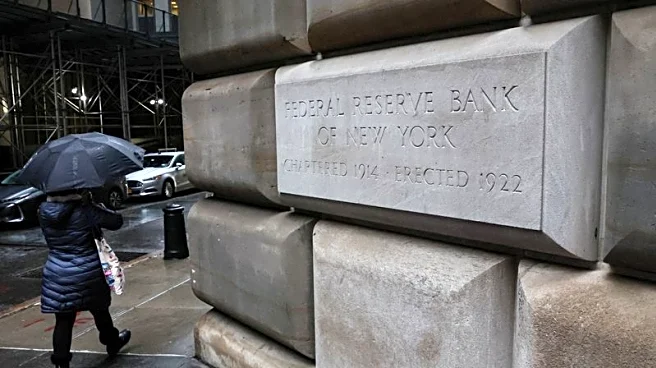What's Happening?
As the High Holidays approach, rabbis are facing increased pressure to deliver impactful sermons while managing various responsibilities such as seating arrangements, security protocols, and educational activities. To alleviate this burden, some rabbis are turning to AI tools like ChatGPT and Claude for assistance. The role of rabbis has expanded significantly over the past two decades, requiring them to be social media experts, accountants, security advisors, and more. This has led to burnout, with many rabbis leaving the pulpit for other roles. AI is being used to draft sermons, brainstorm themes, and structure content, helping rabbis adapt to modern constraints while preserving tradition.
Why It's Important?
The use of AI in religious settings highlights the evolving nature of clerical roles and the need for adaptation in the face of modern challenges. By integrating AI, rabbis can focus on critical aspects of their duties, potentially reducing burnout and ensuring the sustainability of their roles. This adaptation is crucial as the Jewish community faces multiple crises, including rising antisemitism and geopolitical tensions. The involvement of AI also contributes to the development of large language models, enriching them with Jewish wisdom and potentially aiding individuals seeking spiritual guidance.
What's Next?
The integration of AI in religious practices may continue to grow, prompting discussions on ethical and traditional implications. As rabbis and other religious leaders explore AI's potential, there may be increased collaboration to refine these tools for spiritual use. This could lead to broader acceptance and innovative applications within religious communities, potentially influencing how sermons and teachings are delivered in the future.
Beyond the Headlines
The use of AI in religious contexts raises questions about the balance between tradition and technology. While AI can offer efficiency, it also challenges the authenticity of spiritual leadership. This development may spark debates on the role of technology in preserving cultural heritage and the ethical considerations of AI-generated religious content.











